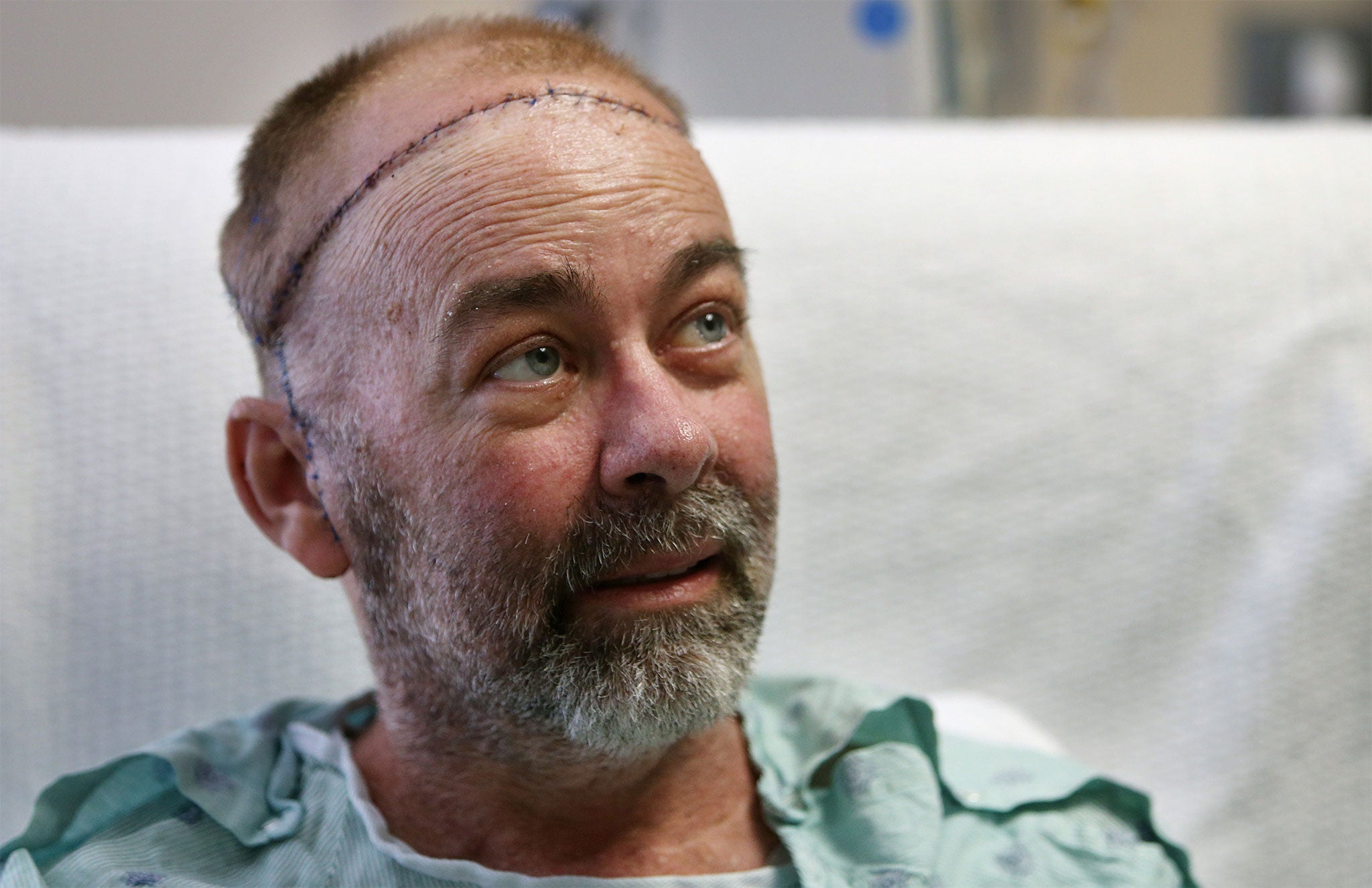Texas hospital carries out world’s 'first partial skull and scalp transplant'
Recipient was Jim Boysen, a 55-year-old cancer sufferer

Your support helps us to tell the story
From reproductive rights to climate change to Big Tech, The Independent is on the ground when the story is developing. Whether it's investigating the financials of Elon Musk's pro-Trump PAC or producing our latest documentary, 'The A Word', which shines a light on the American women fighting for reproductive rights, we know how important it is to parse out the facts from the messaging.
At such a critical moment in US history, we need reporters on the ground. Your donation allows us to keep sending journalists to speak to both sides of the story.
The Independent is trusted by Americans across the entire political spectrum. And unlike many other quality news outlets, we choose not to lock Americans out of our reporting and analysis with paywalls. We believe quality journalism should be available to everyone, paid for by those who can afford it.
Your support makes all the difference.Texas doctors have carried out what is believed to be the world’s first partial skull and scalp transplant to help a man with a large head wound caused from cancer treatment.
MD Anderson Cancer Centre and Houston Methodist Hospital doctors announced on Thursday that they did the operation on May 22, the Associated Press said.
The recipient was Jim Boysen, a 55-year-old software developer from Austin, Texas.

Radiation treatments for a rare cancer left him with an open wound in his head that would not heal. Along with the scalp and skull, he received a new pancreas and kidney to treat lifelong diabetes.
Mr Boysen was preparing to leave the hspital on Thursday with a new kidney, pancreas and scalp and skull grafts. He said he was stunned at how well doctors matched him to a donor with similar skin and colouring.
“It’s kind of shocking, really, how good they got it. I will have way more hair than when I was 21,” he told the AP.
Last year, doctors in the Netherlands said they had replaced most of a woman’s skull with a 3-D printed plastic one. The Texas operation is thought to be the first skull-scalp transplant from a human donor, as opposed to an artificial implant or a simple bone graft.
Mr Boysen had a kidney-pancreas transplant in 1992 to treat diabetes he has had since the age of five and had been on drugs to prevent organ rejection. The immune suppression drugs raise the risk of cancer, and he developed a rare type - leiomyosarcoma.
Radiation therapy for the cancer destroyed part of his head, immune suppression drugs kept his body from repairing the damage, and his transplanted organs were starting to fail. “It was a perfect storm that made the wound not heal,” he said.
Yet doctors could not perform a new kidney-pancreas transplant as long as he had an open wound.
Houston Methodist, which has transplant expertise, partnered on the venture. It took 18 months for the organ procurement organisation, LifeGift, to find the right donor, who provided all organs for Mr Boysen. That donor was not identified.
In a 15-hour operation by about a dozen doctors and 40 other health workers, Mr Boysen was given a cap-shaped, 10-by-10-inch skull graft.
Dr Osama Gaber, director of transplantation at the Methodist Transplant Centre, said: “I'm glad the donor family had the generosity and insight to approve us doing this....to get through their grief and approve the donation of this tissue besides the organs.”
Join our commenting forum
Join thought-provoking conversations, follow other Independent readers and see their replies
Comments